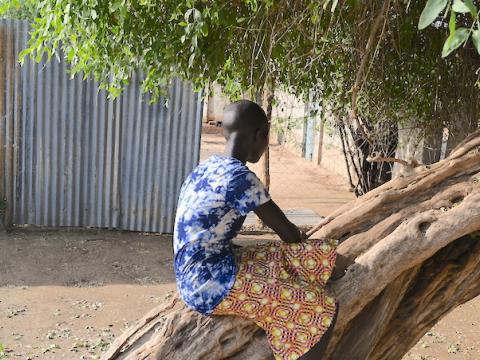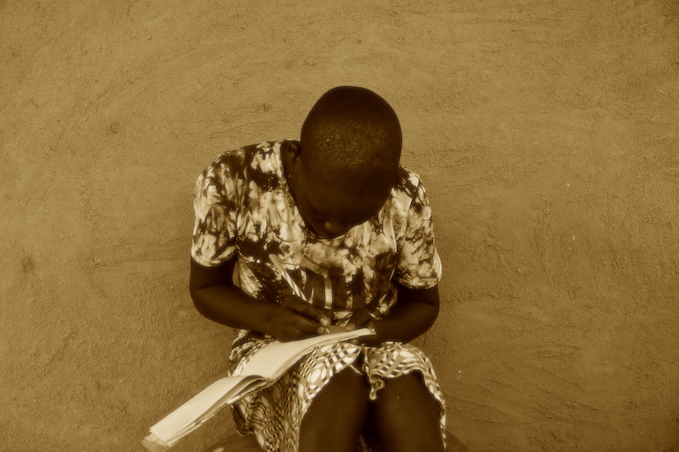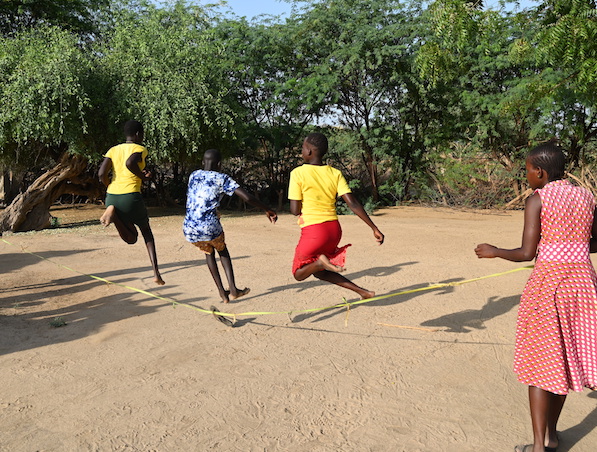'How I escaped child marriage and attained my dream of going to school'

By Sarah Ooko, World Vision Senior Communications & Media Officer, Kenya
Jane (not her real name) was forcefully married off to a man in his 50s, at the tender age of 11.
Her grandmother, with whom she was living at the time, was poor and suffered ill health.
In as much as she wanted to save her grandchild from the ordeal, she could not stand up to Jane's uncles who forcefully abducted her and took the girl to her matrimonial home.
"I was crashed and felt alone in the world, with no one to help me. I cried and pleaded with my uncles to spare me but they wouldn't listen. I even begged them to wait until I was much older before marrying me off but they would hear none of it," recalls Jane.

Her uncles were keen on marrying her off so they could increase their wealth through her bride price, which was given inform of livestock.
At her matrimonial home, Jane felt like she was dying slowly as they forced her to partake wifely duties that she knew nothing about. She felt violated and abused.
Overwhelmed with the suffering and pain, Jane planned her first escape and ran away back to her grandmother's house.
But her joy was short-lived. No sooner had her uncles heard about the escape, than they came looking for her. While at it, they beat her thoroughly, leaving bleeding wounds all over her back to express their anger and 'teach' her a lesson.

Numerous escape attempts resulted in the same fate but Jane refused to give up on her quest for freedom.
One evening, while her husband and co-wives were preoccupied with other activities, she escaped and ran into the forest with one of her younger sisters who had come to visit her.
"I didn't know where I was going or whether I would survive but taking the risk was better than the suffering I was going through. I chose the forest to make it hard for my uncles to find us and kept running so I could be as far away from the village as possible," she says.
At around three o'clock in the morning, herders who were in search of pasture for their livestock saw them and immediately reported the matter to the area chief.
The matter was taken up by a paralegal community officer, Philip, trained by World Vision on child protection matters through the support of The Global Fund and the Kenya Red cross Society.
He presented the matter at the community's kangaroo (informal) court that comprises of a paralegal (himself), the area chief, elders, a youth champion, a faith leader, a households’ representative, a women’s representative and a child protection expert.
They deliberated on the issue and made a decision to have the girl stay with a relative who would offer her foster care and enable her to pursue her education in a safe and loving home.
"Her story really touched us and we went ahead and contributed for her upkeep and school necessities such as purchasing uniforms and stationery," notes Philip.

Now Jane is in school, studying hard and enjoying the warmth and love from her family and fellow pupils. They welcomed her wholeheartedly into their lives.
"My dream is to become a teacher. You know, teachers have a lot of influence in my community. People listen to them and they are respected. So becoming a teacher will enable me to not only teach but also create awareness about children's rights and help protect them from abuse," she says.
Jane adds that education was a lifelong dream that she had almost given up on. She is therefore grateful to God for giving her the hope and courage to break free from the forced marriage and get support from well-wishers.
"While living with my grandmother, I asked her to take me to school but she lacked money. Nevertheless, I still presented myself at a local school where teachers sought to help me. But I didn't stay for long there since my uncles had plans to marry me off. Now I have resumed my studies and I am taking this opportunity to learn as much as possible," says Jane.

World Vision has been building the capacity of these local kangaroo courts to preside over family disputes, child protection cases and rescue children affected by acts of violence committed against them.
These local courts help fill the legal and justice system gaps which exist in most rural areas that lack official courts.
"Because we have these local courts, we are able to move in quickly and attend to matters affecting children quickly so as to avoid delays that adversely affect children," notes Daniel Morijo, the area chief.
Since they work closely with the administration police, government child protection units and the law courts, the local kangaroo courts are able to refer cases that are beyond their mandate and ensure that perpetrators of violence against children face the law.